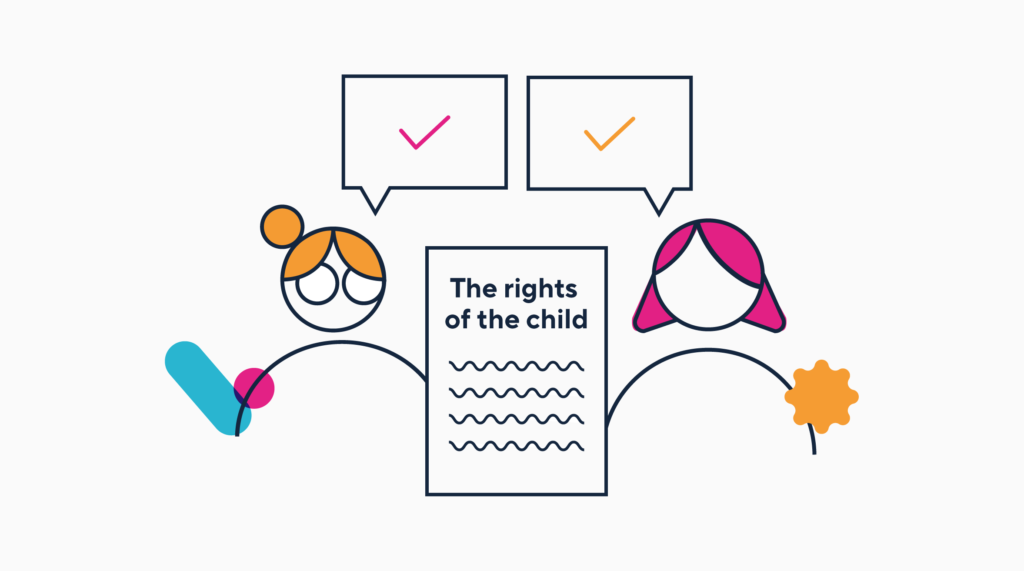The Convention on the Rights of the Child (CRC) is a legally binding international agreement. The United Nations General Assembly adopted it in 1989. It is the most widely ratified human rights treaty in history. 196 countries have ratified the convention as of 2023.
The CRC establishes the entitlement of all children to certain rights. Regardless of their race, gender, religion, or any other status. It recognizes that children are not just passive recipients of care and protection.
The CRC consists of 54 articles. They can be broadly categorized into four key areas. They are survival and development, protection from harm, participation, and non-discrimination.
The four key areas are below :
Survival and Development: The first category of rights under the CRC recognizes the right of every child to survive and develop. This includes the right to nutritious food, clean water, and adequate healthcare.
As well as access to education and cultural activities. The CRC mandates that governments take measures to ensure that all children can access these essential requirements of life.
Protection from Harm: The second category of rights under the CRC recognizes the right of every child to protection from harm. This includes protection from violence, abuse, neglect, and exploitation.
It also includes protection from involvement in armed conflicts. The CRC mandates that governments take action to protect children from these risks. The CRC mandates holding those who harm children accountable.
Participation: The third category of rights under the CRC recognizes the right of every child to participate. This includes the right to express their opinions. Also to have them taken into account in decisions that affect them. It also includes the right to freedom of association and peaceful assembly.
The CRC mandates that governments provide opportunities for children to take part in decisions that affect them. They are also required to provide support for children who wish to exercise these rights.
Non-discrimination: The final category of rights under the CRC recognizes the right of every child to non-discrimination. This includes protection from discrimination.
On the basis of race, gender, disability, religion, or any other status. The CRC mandates that governments take measures to ensure equal treatment of all children.
CRC’s impact on the rights of children:
The CRC has had a significant impact on promoting and protecting the rights of children around the world. It has led to the creation of laws and policies that support the rights of children.
For example, the CRC has been instrumental in promoting the adoption of laws. Also, policies prohibit child labor and child marriage. As well as laws that protect children from abuse and exploitation.
The CRC’s influence has led to the creation of programs that provide various essential services. Such as education, healthcare, etc.
The UN requires governments that ratified the convention to submit regular reports. On their progress in implementing the convention’s provisions. The Committee on the Rights of the Child reviews these reports.
They are a group of independent experts who provide suggestions to governments. About the protection and promotion of children’s rights.
But there is still a lot of work that isn’t done yet.
Millions of children around the world continue to face discrimination, poverty, and violence. Their rights are not always respected or protected. The COVID-19 pandemic has also highlighted the importance of protecting the rights of children.
Particularly those who are most vulnerable. NGOs like Fikrah provide food, education, healthcare, and other essential services to underprivileged children.
Click here to know more about Child Rights.
Conclusion:
In conclusion, the Convention on the Rights of the Child is a landmark treaty that outlines the fundamental rights of children around the world. It has been instrumental in ensuring the protection of children from harm also that they are being treated equally.
The CRC serves as a powerful reminder that children have the same rights and freedoms as an adult. Also that it is the responsibility of governments and society.

